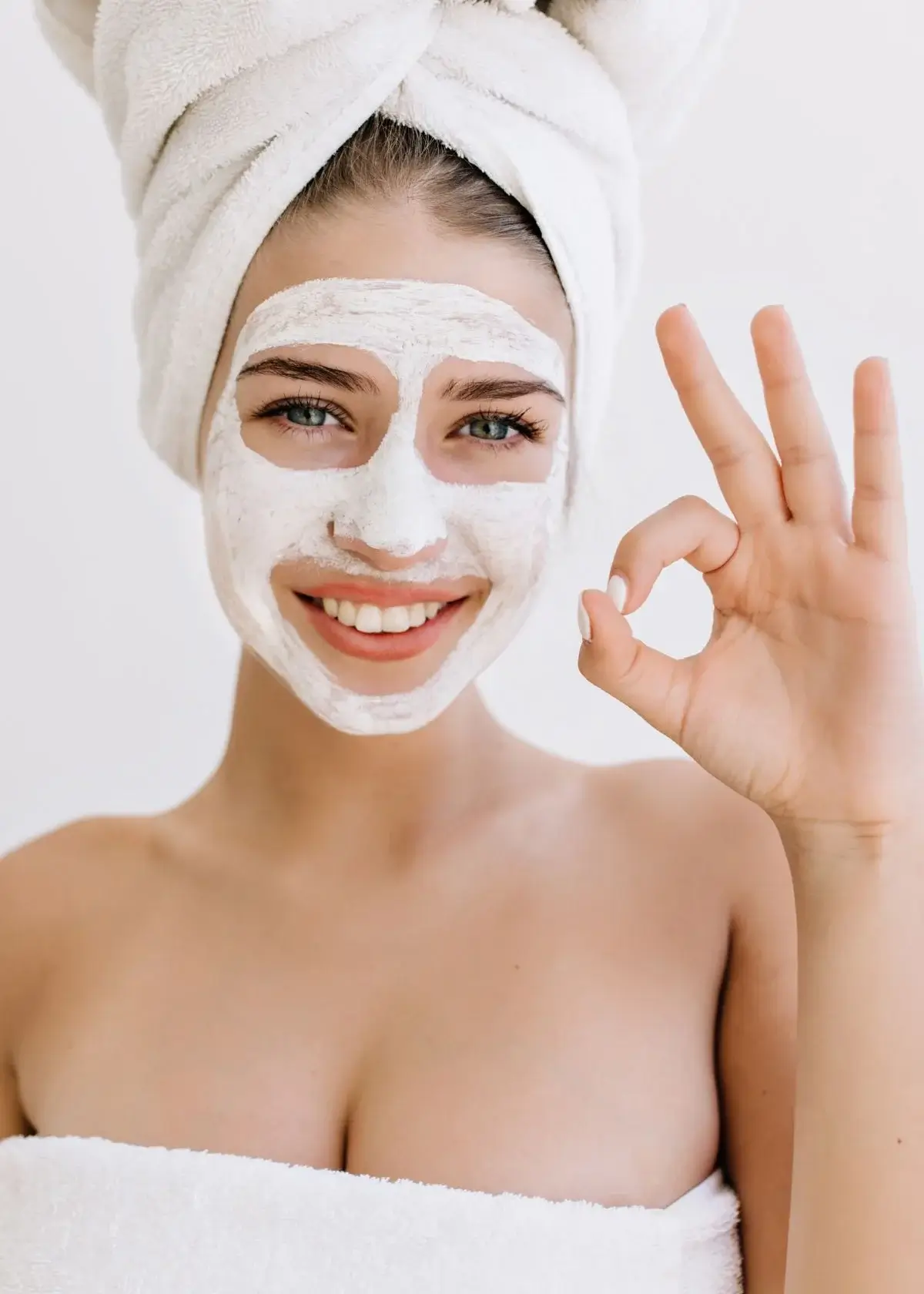Before diving into the benefits of using a mask for acne, let's briefly touch on these masks and how they work. Acne masks are topical treatments formulated with ingredients that help combat acne, reduce inflammation, and improve overall skin health. They come in various forms, such as clay, sheet, and gel masks, each with unique benefits. Now, let's explore the advantages of using a mask for acne.
Deep Cleansing
One of the primary benefits of using a mask for acne is its ability to cleanse the skin deeply. These masks often contain ingredients like activated charcoal, kaolin clay, or salicylic acid, which draw out impurities and unclog pores. By removing excess oil, dirt, and dead skin cells, the mask helps prevent the formation of new acne lesions and minimizes the appearance of existing ones.
Oil Control
Excessive oil production is a common cause of acne breakouts. Acne masks formulated with oil-controlling ingredients can help regulate sebum production, reducing shine and preventing clogged pores. Look for masks containing ingredients like tea tree oil, witch hazel, or niacinamide, known for their oil-balancing properties.
Exfoliation
Regular exfoliation is crucial for maintaining healthy skin and preventing acne breakouts. Many acne masks contain gentle exfoliating agents like alpha-hydroxy acids (AHAs) or beta-hydroxy acids (BHAs). These ingredients help slog off dead skin cells, promote cell turnover, and clear the pores. Regularly using these masks can leave your skin looking smoother, brighter, and less prone to acne.
Soothing and Calming
Acne can often cause redness, inflammation, and irritation. Masks infused with soothing ingredients like aloe vera, chamomile, or green tea can provide relief and help calm the skin. These natural extracts have anti-inflammatory properties that reduce redness, soothe irritation, and promote healing. Incorporating a soothing mask into your skincare routine can benefit those with sensitive or acne-prone skin.
Hydration
Contrary to popular belief, acne-prone skin needs hydration too. Many acne masks are formulated with hydrating ingredients like hyaluronic acid or glycerin. These ingredients attract and retain moisture in the skin, preventing dryness and promoting healing. Keeping your skin adequately hydrated helps maintain its barrier function, essential for protecting against environmental aggressors and reducing the risk of further breakouts.
Targeted Treatments
Different types of acne require specific treatments. Acne masks come in a wide range, each targeting different concerns. For instance, clay masks are excellent for oily skin as they absorb excess oil and unclog pores. Sheet masks infused with serums can provide intense hydration to dry or dehydrated skin. Look for masks that address your specific skin concerns, whether acne-prone, sensitive, or combination.
Using a mask for acne can be a game-changer in your skincare routine. The benefits of deep cleansing, oil control, exfoliation, soothing, hydration, and targeted treatments make these masks an effective addition to your acne-fighting arsenal. Incorporating an acne mask into your regular skincare routine can enhance the results and achieve clearer, healthier-looking skin. Remember, consistency is key when it comes to skincare. Use your acne mask as directed, typically once or twice a week, and complement it with a well-rounded skincare regimen suitable for your skin type. If you're unsure which mask to choose or need personalized advice, consult a dermatologist or skincare professional.
After conducting thorough research, we have found a variety of highly recommended best face masks for acne skin. Some popular options include the Peter Thomas Roth Therapeutic Sulfur Acne Treatment Mask, the Differin Clay Face Mask, and the Yes To Tomatoes Acne-Fighting Paper Mask. These masks are known for their targeted acne-fighting ingredients and effectiveness in addressing skin concerns. You can follow the link to explore the full range of options and find your new favorite face mask for acne. Consider your skin type and specific needs when choosing the best face mask.
What precautions should be taken when using face masks for acne?
Employing face masks for acne requires strategic precautions. Regularly launder reusable masks to prevent bacterial proliferation and minimize overuse to avoid potential skin irritation. Prioritize masks crafted from breathable materials like cotton to reduce friction. Refrain from touching your face, especially when adjusting the mask, preventing the transfer of bacteria. Integrate mask-free intervals to allow the skin to breathe, fostering a healthier complexion. Consistent hygiene practices and mindful usage mitigate the risk of exacerbating acne concerns, ensuring a practical and comfortable experience with acne-focused face masks.

What is the significance of pH balance in face masks for acne?
Delving into acne-focused face masks unveils the pivotal role of pH balance. Optimal pH levels, ideally around 4.7-5.75, maintain the skin's acid mantle, fortifying its natural defenses. Acidic formulations enhance the efficacy of acne-fighting ingredients, fostering an environment hostile to acne-causing bacteria. Alkaline products, conversely, can disrupt this delicate balance, exacerbating acne and compromising the skin barrier. Choosing pH-balanced face masks ensures a harmonious integration into your skincare routine, maximizing their potential to address and prevent acne concerns effectively.

What should be considered when choosing a face mask for acne scars?
Navigating the selection of face masks for acne scars involves thoughtful considerations. Opt for masks rich in skin-renewing ingredients like vitamin C or niacinamide, renowned for their brightening effects. Explore masks containing alpha hydroxy acids (AHAs) or beta hydroxy acids (BHAs) to promote gentle exfoliation, diminishing the appearance of scars. Moisturizing components such as hyaluronic acid ensure hydration, aiding the skin's healing process. Regular use, coupled with patience, unveils a refined complexion. Tailoring your choice to ingredients known for scar reduction elevates the mask's efficacy in addressing post-acne marks, providing a multifaceted approach to scar management.

How should I moisturize my skin after using an acne face mask?
Post-mask moisturization is crucial in nurturing the skin after an acne-focused treatment. Opt for a non-comedogenic, hydrating moisturizer to replenish the skin's moisture balance without clogging pores. Ensure the moisturizer contains soothing agents like aloe vera or chamomile to alleviate potential post-treatment irritation. Apply the moisturizer gently, using upward motions, fostering a calming experience. Incorporating this step into your routine ensures that the skin remains nourished, enhancing the overall effectiveness of the acne face mask without compromising its benefits. This emphasis on post-mask care underscores the holistic approach to skincare.

How does the climate and environment affect the choice of face mask for acne?
Tailoring your choice of face mask for acne to the climate and environment is integral for optimal results. Opt for masks with lightweight formulations in humid conditions to prevent excessive moisture retention and potential breakouts. In drier climates, prioritize hydrating masks enriched with glycerin or hyaluronic acid to combat dryness without exacerbating acne concerns. Environmental factors, such as pollution, necessitate masks with antioxidant properties, shielding the skin from free radicals. Adapting your choice to the external milieu enhances the mask's efficacy in addressing acne while accommodating the skin's specific needs.
Should I discontinue the use of face masks if I experience initial breakouts?
Experiencing initial breakouts when incorporating face masks for acne is not uncommon and does not necessarily warrant discontinuation. This phenomenon, known as purging, signifies the acceleration of the skin's renewal process. Persisting with the mask while monitoring the skin's response allows the purge to subside as the skin adjusts to the treatment. However, if irritation persists or worsens, consider revisiting your skincare routine or consulting a dermatologist for personalized guidance. Patience is key, as the transient phase of initial breakouts often leads to clearer and healthier skin in the long run.







